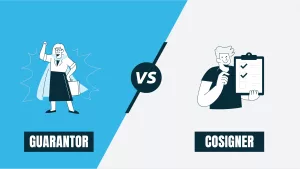If you have a good broker, he must get some color from the Seller’s real estate agent about the competing offer(s). If you find out that you are competing against a contingent mortgage offer, you could bid lower and still get your offer accepted.
What is a Contingent Offer on a property in NYC real estate?
Go Back To Previous PageWhen planning to purchase an apartment or home in NYC, you will hear about contingencies from your broker and your real estate attorney. A contingent offer on the house is an offer where the buyer discloses potential contract contingencies in advance. Both buyers and sellers in real estate are familiar with contingent offers. How often do contingent offers fall through?
Although typical, contingent offers come with risks for both parties. In the following article, we discuss everything you’ll need to know about contingent offers on houses, including:
1. Non-Contingent Offer: What is that?
A non-contingent offer on the house is an offer on a unit made without any deal contingency. An example is an all-cash offer, and it can also be an offer with financing that doesn’t have any other form of real estate contingency. Contingencies protect buyers.
financing that doesn’t have any other form of real estate contingency. Contingencies protect buyers.
An offer with non-contingent financing is not less risky for the buyer. Indeed, they will have to buy the property regardless of the financing aspect, which is an excellent option if the buyer has the cash anyway.
In a non-contingent deal, there are no protections for the buyer “in contract” if he cannot secure financing. Buyers who place a noncontingent offer with financing know they can secure the money to buy all cash if they cannot.
Those buyers have enough liquidity available to buy a home all cash. However, they prefer to benefit from a low-interest rate mortgage. Sometimes, they can benefit from the Seller’s financing.
Another scenario is when buyers have a wealthy family and can borrow the cash to close quickly if the financing does not materialize.
2. What is a Contingent Offer on a property?
A buyer will make a contingent offer on a house when they require certain conditions to be met before closing the sale.
The buyer says I want to purchase this home but have some concerns. These concerns are typically predictable and fall into one of four categories. You must become familiar with the different types of contingencies and how they can impact the deal.
The buyer will offer a home contingent on an appraisal to ensure the home is worth as much as they agreed to pay. A professional home appraisal will determine the home’s fair market value. Then, the buyer will compare this number to the contract purchase price.
professional home appraisal will determine the home’s fair market value. Then, the buyer will compare this number to the contract purchase price.
Therefore, a successful appraisal will evaluate whether the home purchase price is fair. If the home appraisal determines the home’s fair market value is much less than the asking price, the buyer may back out of the deal or renegotiate.
-
Home Inspection Contingencies
Home inspection contingencies are common. The buyer must inspect the home and go into the closing knowing the exact condition of what they agree to buy. Typically, a buyer will hire a home inspector to alert him of any existing or potential structural or aesthetic damages.
If the inspector flags any significant issues, the buyer can negotiate the asking price or entirely back out of the deal, depending on the severity of the problems.
-
Mortgage Approval Contingencies
Another protection for the buyer is mortgage contingency. This is when the deal hinges on whether or not the buyer can secure financing from a lender. This may come up when a buyer finds the perfect place and wants to put in an offer before seeing a mortgage lender willing to give them a mortgage.
lender. This may come up when a buyer finds the perfect place and wants to put in an offer before seeing a mortgage lender willing to give them a mortgage.
If the buyer cannot find a lender after putting down this contingent offer on the house, they can legally walk away from the deal and take their 10% deposit with them on the way out.
An offer with a mortgage contingency is a significant risk for a seller. Sellers need assurance that prospective buyers come to the deal with the necessary funds. They should also look for buyers who are pre-approved for a mortgage.
-
Hubbard Contingency or sale contingency
A sale or Hubbard contingency allows a buyer to sell his existing home before being forced to walk away or waive his/ their right to walk away from his/ their new purchase. Homebuyers who need to sell their home first won’t face the uncertainty of whether they’ll use the old house’s proceeds in time to buy the new property.
from his/ their new purchase. Homebuyers who need to sell their home first won’t face the uncertainty of whether they’ll use the old house’s proceeds in time to buy the new property.
Buyers sometimes need the money from their home sale to buy the new one. If they are in contract on their new home, the pressure increases. But they cannot find a buyer for their current one. They risk losing their 10% earnest money if they cannot find the funds to complete the purchase.
These sale contingency offers are significantly less attractive to sellers than a comparable non-contingent offer, and this is not something they can control. Sellers have no information on how likely the buyer’s existing unit may sell and the timing.
3. What Should Buyers Know about making a Contingent real estate Offer?
Buyers need to have a clear idea of their specific goals and timelines.
The offers discussed above offer buyers certain protections but have associated risks. Say a buyer comes across a home they love, but the appraisal is lower than the asking price. The seller may not be willing to negotiate down, and you could lose the sale.
It’s also risky for a buyer to enter the market without pre-approval. If you put down an offer and cannot secure financing, you can lose the sale if another pre-approved buyer comes along. This is why getting pre-approved before shopping is always a good idea.
4. Should a Seller Accept a Contingent Real Estate Offer?
The answer is yes, but only if you have no other offers. However, if you have multiple offers, you should encourage contingent buyers to improve their terms by increasing the purchase price and removing their contingencies. Another technique is to accept multiple offers and even send out numerous sales contracts for negotiation in parallel. An accepted bid is not binding until contracts are fully executed.
terms by increasing the purchase price and removing their contingencies. Another technique is to accept multiple offers and even send out numerous sales contracts for negotiation in parallel. An accepted bid is not binding until contracts are fully executed.
The Seller is the last to sign when the attorneys circulate the signature pages. The Seller is not bound to an accepted offer until he counter-signs the pending sales contract.

 the real estate transaction if they can’t secure a bank loan.
the real estate transaction if they can’t secure a bank loan. attractive, and the Seller will accept your proposal vs. the contingent real estate offer.
attractive, and the Seller will accept your proposal vs. the contingent real estate offer.

